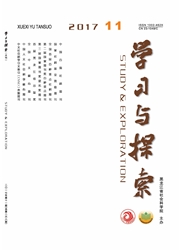

 中文摘要:
中文摘要:
在我国,碳税已被提到议事日程。技术创新是减少碳排放的根本,工业是我国碳排放的主要来源,研究碳税对工业创新能力影响及机制意义重大。采用CGE模型定量模拟碳税对我国工业创新能力的影响及机制研究,得出:总体上,征收碳税会减弱大多数工业部门的创新能力,而补贴碳税却能减弱甚至消除这种不利影响,因此在碳税征收后需给予一定的补贴额度。具体分析,除交通运输设备制造业无需补贴,传统能源密集型部门和创新能力较强部门的最优补贴率均不低于50%,而其他部门仅需较低的补贴率即可实现创能能力的提高。因此,政府在制定碳税征收政策时,在统一碳税税率水平后,需针对不同工业部门制定不同的后续补贴政策。
 英文摘要:
英文摘要:
In our country, the carbon tax has been put on the agenda. For technical innovation being the foundation in reducing carbon emission and industries' leading status in the field of carbon emission source in our country, the research on effect of carbon tax on China industrial innovation ability and its mechanism has great significance. Use CGE model to make quantitative simulation of the research on effect of carbon tax on China industrial innovation ability and its mechanism. The result is : As a whole, carbon tax will weaken the innovation ability of most industrial sectors ,while carbon tax subsidies can weaken or even eliminate this adverse effect, so giving some subsidies after collecting carbon tax is necessary. To analyze concretely, except the transportation equipment manufacturing industry which needs no subsidies, traditional energy intensive sectors and those with strong innovation ability need a subsidy rate no less than 50%, the other sectors only need low subsidy rate to realize the enhancement of innovation ability. Therefore, when the gov- ernment makes carbon tax policy, after unified the tax rate level, they should make different follow-up subsidy policies to different indus- trial sectors.
 同期刊论文项目
同期刊论文项目
 同项目期刊论文
同项目期刊论文
 期刊信息
期刊信息
